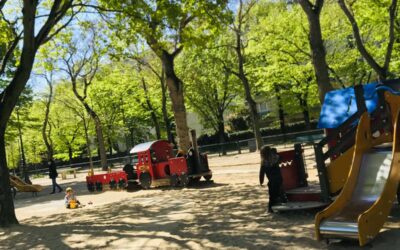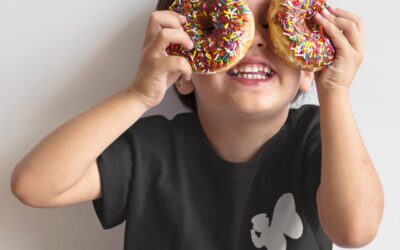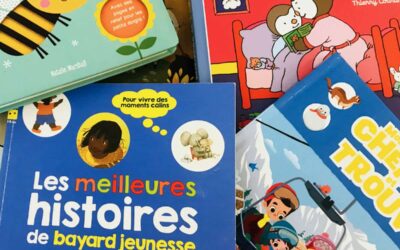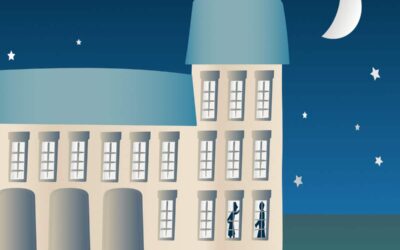If you have children in primary school and are considering relocating to France, you might be interested in learning more about the country’s educational system.
Primary school, also known as elementary school in France, is an important part of the education system. It typically begins at the age of 6 and lasts for 5 years:
| French School Grade | Acronym meaning | Age of Child |
|---|---|---|
| CP | Cours préparatoire (Preparatory course) – equivalent to Grade 1 | 6 |
| CE1 | Cours élémentaire 1 (Elementary course) – equivalent to Grade 2 | 7 |
| CE2 | Cours élémentaire 2 (Elementary course) – equivalent to Grade 3 | 8 |
| CM1 | Cours moyen 1 (Middle course) – equivalent to Grade 4 | 9 |
| CM2 | Cours moyen 2 (Middle course) – equivalent to Grade 5 | 10 |
By the time French children enter Grade 1 (CP) in primary school, they have already been in school for 3 years (the maternelle starts at age 3) and are already well established in their routines.
This can be quite different from other countries where formal schooling often starts at a 5 or 6. So let’s find out what really goes on in primary school in France, shall we? Allons-y!
The Learning cycles
French schools are governed by a series of laws known as the Règlementation pédagogique. The guidelines and standards for teachers are set by the French government, and the teachers are part of the Education nationale.
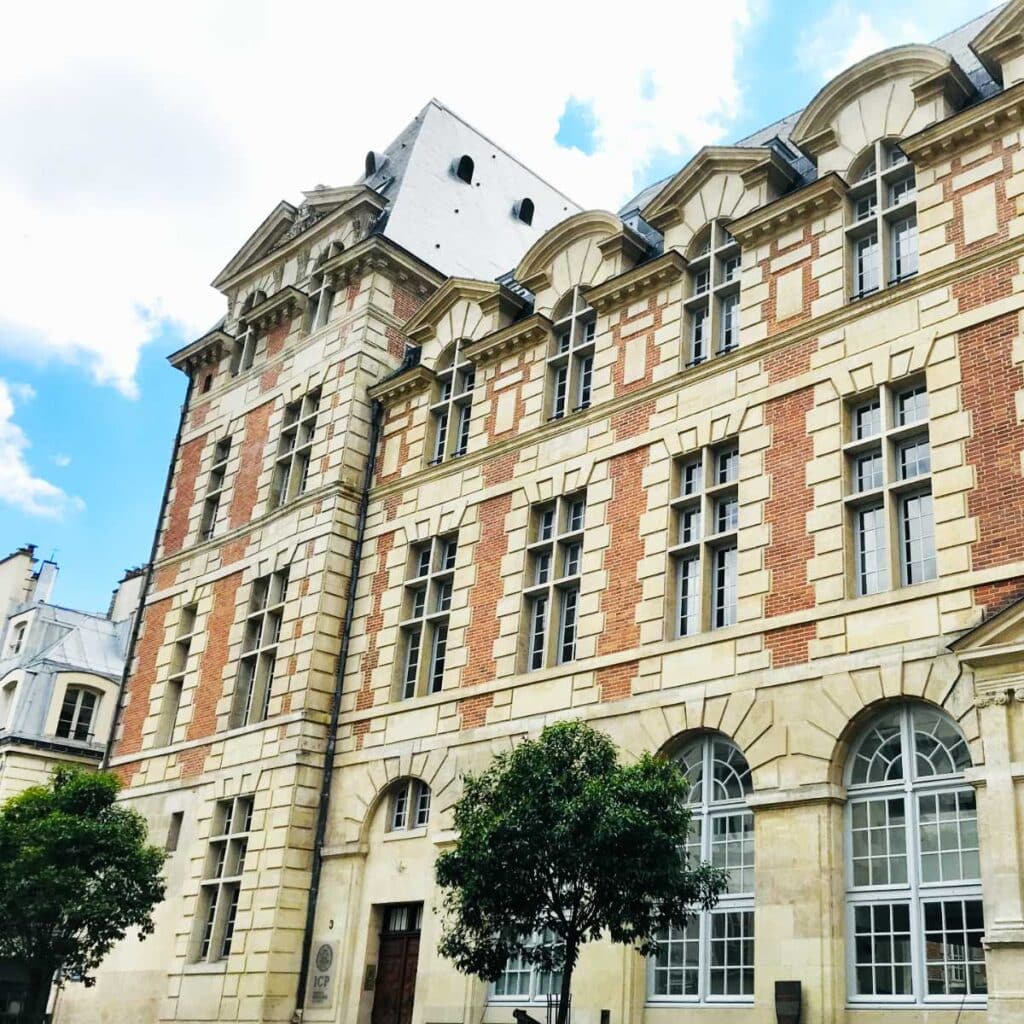
The primary school years are grouped together in cycles. The first cycle is preschool and kindergarten (maternelle) which occurs before the children get to CP (Grade 1).
The 2nd cycle starts in primary school in France, where CP-CE1-CE2 are grouped together. The 3rd cycle includes CM1-CM2 and 6eme which is in collège (middle school).
CP-CE1-CE2 (French Grades 1-2-3)
In cycle 2, the acquisition of basic knowledge (reading, writing, counting, respecting others) is the priority.
The first two years include learning while the 3rd year involves reinforcement of topics learnt. Children are more likely to be held back a year in CE2 (3rd grade) if they cannot fully meet the requirements of Cycle 2.
Topics studied in Cycle 2 (French Grades 1-2-3) include:
- French – reading and writing in cursive
- Maths and geometry
- One foreign language – usually English or German. Regional languages may also be taught.
- Art
- Plastic arts
- Music
- Physical education and sport
- Moral and civic education
- Question the world
One of the key features of elementary school in France is the emphasis on learning to read and write. In the early years of primary school, much of the focus is on developing memory by learning poems, learning how to write neatly and manage their school work.
La dictée (dictation) is also a big part of French learning. Unlike English, French is a language with a lot of accents and hidden sounds and accords. As such, learning to write with the teacher dictating a paragraph of French literature is part of the culture.
Along with dictation, students study classic French poets and their most famous poems in school, and at times are expected to be able to memorize it and recite it in class. The idea is to listen to understand “the diversity of language”. You can read some examples of French poetry for kids here.
In addition to the core subjects, elementary school students in France also receive instruction in music, art, physical education, and a foreign language.
French schools typically begin teaching a foreign language (usually English or German) from the first year of elementary school, with the goal of giving students a strong foundation in the language before they move on to the next cycle.
CM1-CM2 (French Grades 4-5)
In the last two years of primary school, CM1 and CM2, the emphasis is on preparing to move up to middle school (called collège in French).
This is Cycle 3, where students dig deeper into subjects like science and technology, history and geography, and art history. The idea is for reasoning and the sense of observation, along with taste for experimentation to be developed.
The subjects in Cycle 3 are quite similar to those taught in the Cycle 2, although much more in depth:
- French – Poetry, essays, etc.
- Maths and geometry
- Science and technology
- Foreign languages – English, German, Spanish and regional languages.
- History of Art
- Arts and crafts
- Music
- Physical education and sport
- Moral and civic education
- History and geography
In addition to these core subjects, there is also a strong emphasis on French culture and language, with a focus on reading, writing, and speaking in French.
Structured atmosphere
One of the other notable features of elementary school in France is the emphasis on discipline and respect. Students are expected to follow rules and respect authority. This can sometimes lead to a more structured and formal atmosphere in French elementary schools, compared to schools in other countries.
As students progress through primary school, the emphasis on play-based learning gradually shifts to more traditional academic subjects. However, even in the later years of primary school, there is still a strong focus on hands-on learning and problem-solving activities.
Class sizes
In France, primary schools are typically organized into classes, with each class having around 20 to 25 students. Classes are led by a teacher, who is responsible for teaching all subjects and providing support to students.
In addition to the classroom teacher, there are also other specialists who teach subjects such as language, music, art, and physical education. These teachers often work with small groups of students, or with the entire class, depending on the subject.
School hours
In terms of the school day, primary school in France typically runs from 8:30am to 4:30pm, with a break for lunch in the middle of the day. Students are also given a number of breaks throughout the day, which allow them to stretch their legs and engage in activities such as outdoor play or group games.
There is generally no school on Wednesdays, as that is the day children are meant to do activities. Centre de Loisirs in the same building as the school are usually available, if parents cannot keep their children at home.
There is also a 2 week school holiday every 6 weeks between school terms. Centre de loisirs are also available during that period if parents cannot keep their children at home.
Study hall
Starting in primary school, children are offered an accueil des études (study hall), where they can do their homework after school while waiting for their parents. It usually lasts an hour, after which they can join the regular centre de loisirs.
There are two types of study hall, étude surveillée and étude dirigée. Etude surveillée is supervised study hall, where the child works somewhat independently on their homework, rather than waiting to get home to do it.
Etude dirigée, on the other hand, is more of a directed study hall for students in difficulty, who would benefit from small class size and more personal attention. The type of study hall offered depends on the school.
Field trips
Beyond classroom learning, students are offered Class Verte or Classe Blanche, which are experiences outside the classroom.
In Classe Verte (green class) is exploring the countryside, with activities such as hiking, canoeing, horseback riding, etc.
Classe Blanche (white class) is usually for skiing and snow-related activities. Students who live the French Alps usually also have day trips to nearby ski resorts in winter as part of their schooling.
These can be day trips or overnight trips over 1-3 weeks, where the entire class is expected to participate. The teacher accompanies the trip with regular lessons in the morning, and the afternoon used to concentrate on the physical activities.
Grading
All the children get a report card twice a year, at half-term before the Christmas holidays, and at the end of the year in June. However, there are usually dictation tests and other tests that are graded and sent home for parents to sign on a weekly basis.
In addition, parents must give their approval for child to move up a grade. At the end of each year, parents receive two forms for the Poursuite de Scolarité. The first form is the Proposition du conseil des maîtres with the decision of teacher and preschool to either promote the student or keep him/her behind. Parents have a few days to approve or appeal the decision.
A few days after that, parents will get a 2nd form with la décision of Conseil des maîtres. This decision can then also be approved or appealed by the parents to the Appeals Commission and the School Board.

Overall, elementary school in France is focused on providing a well-rounded education that emphasizes hands-on learning, discipline, and support for individual needs. While there may be some differences from other education systems, the goal is to prepare students for success in middle school and beyond.
If you enjoyed that article, you may want to read more about family life France. A bientôt!

